20 easy ways to eat healthier
I tried a simple, plant-based diet for 30 days and the results were pretty amazing.
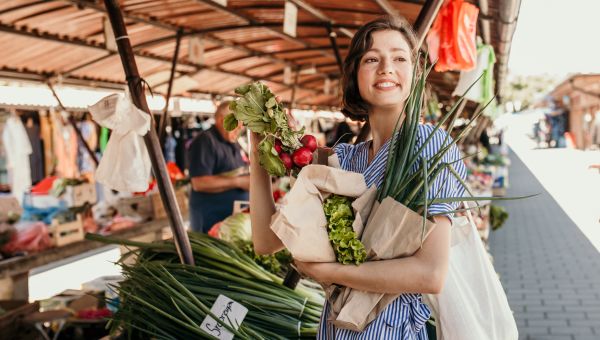
On February 1, 2017 my life expectancy clocked in at 65.2 years, according to the RealAge test, which estimates your life span based on your health habits.
65.2 years?! No one wants to live forever, but that’s barely even retirement age.
At the time, I’d published a number of articles on Blue Zones, or areas with the world’s longest living people. Residents of Blue Zones… Show More
On February 1, 2017 my life expectancy clocked in at 65.2 years, according to the RealAge test, which estimates your life span based on your health habits.
65.2 years?! No one wants to live forever, but that’s barely even retirement age.
At the time, I’d published a number of articles on Blue Zones, or areas with the world’s longest living people. Residents of Blue Zones tend to live by nine core principles, which include:
- Building exercise into their daily routine
- Eating a mostly plant-based diet
- Spending meaningful time with family and friends
In sharp contrast, I was living the hectic, carb and caffeine-fueled life of a full-time employee and graduate student—and my test results proved it.
Medically reviewed in July 2019.
Show Less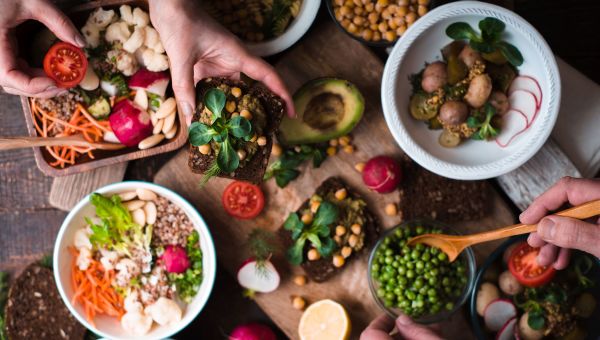
My 30-Day Challenge
I decided to test my own advice and adopt the Blue Zone principle I was failing at most miserably: eating a mostly plant-based diet. I committed to the “Plant Slant,” a healthy eating approach, which Blue Zone website describes as focusing on beans, such as fava, black, soy and lentil, as well as… Show More
I decided to test my own advice and adopt the Blue Zone principle I was failing at most miserably: eating a mostly plant-based diet. I committed to the “Plant Slant,” a healthy eating approach, which Blue Zone website describes as focusing on beans, such as fava, black, soy and lentil, as well as very little protein from meat.
Specifically, my goals were 1) eat mostly plant-based dishes—no beef, pork or preserved meats; poultry and fish on special occasions only and 2) eat home-cooked meals every day for 30 days.
To track my progress, I used the Sharecare app. It’s available on iOS and Android. Through the app, I was able to log the quality and size of my meals, so I could be certain I was staying on track during my challenge.
Show Less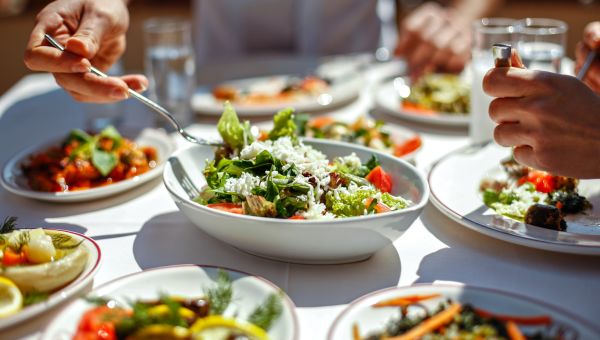
4 Benefits of Adopting a “Plant Slant”
The simple approach of eating veggie-based meals at home meant I’d automatically have:
- Less salt, fat and preservatives in my diet since restaurants typically use more of these ingredients than I do at home
- More nutritional diversity. A rainbow of veggies, rather than a mountain of carbs
- Less … Show More
The simple approach of eating veggie-based meals at home meant I’d automatically have:
- Less salt, fat and preservatives in my diet since restaurants typically use more of these ingredients than I do at home
- More nutritional diversity. A rainbow of veggies, rather than a mountain of carbs
- Less saturated and trans fats since these are mainly found in meat and processed foods
- A balanced check-book since eating out is pricey
With little-to-no time for complicated recipes or cleanups, I had to teach myself every possible shortcut and hack to make my plan work. Full disclosure: My cooking skills are not impressive. I set off the smoke alarm every time I cook. Every. Time.
Show Less
Eating Plants Helped Me Save Money, Lose Weight
Despite my culinary incompetence, I somehow managed to pull off this challenge. I lost around seven pounds overall, which is a healthy amount for one month. This was a big victory, but I was even more amazed that my time management improved when cooking at home. I no longer had to search for food… Show More
Despite my culinary incompetence, I somehow managed to pull off this challenge. I lost around seven pounds overall, which is a healthy amount for one month. This was a big victory, but I was even more amazed that my time management improved when cooking at home. I no longer had to search for food or wait for deliveries. Meal prep was surprisingly quick and my fridge was always stocked with healthy options.
Between eating less meat, not paying delivery fees and preventing food from going to waste, I also spent about $400 less on food that month.
Between these changes and a focus on stress reduction, I’m happy to announce that my life expectancy bumped up to 77.7 years! Here are the 20 super simple tips that helped me complete this challenge:
Show Less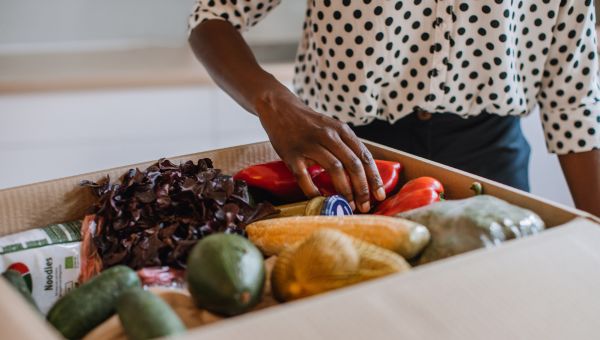
My Fridge Was Full with Just a Click
I created an auto-delivery grocery list with a local food supplier. I chose shelf-stable produce like carrots and cabbage that wouldn’t spoil before I had a chance to eat it—enough for at least two breakfasts, two lunches and two dinners per order cycle.
This removed a lot of the legwork from… Show More
I created an auto-delivery grocery list with a local food supplier. I chose shelf-stable produce like carrots and cabbage that wouldn’t spoil before I had a chance to eat it—enough for at least two breakfasts, two lunches and two dinners per order cycle.
This removed a lot of the legwork from healthy eating. I sidestepped the long lines, grocery-aisle temptations and travel time. The fridge was never empty and restaurant delivery was no longer “faster” or “easier” than the good stuff I had at home.
If your local grocery store doesn’t have food delivery, you can always turn to Amazon or sign up for a farm fresh CSA share.
Show Less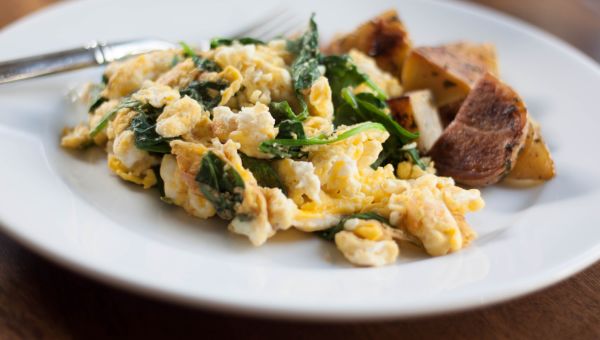
Breakfast Was an Everyday Must
Without the most important meal of the day, I become a carb-crazed lunatic by 11 a.m. So I never skipped breakfast during this challenge—not even once. I made sure to include protein and fiber every morning. My go-to was scrambled eggs with feta cheese and leftover greens from the night before.
Without the most important meal of the day, I become a carb-crazed lunatic by 11 a.m. So I never skipped breakfast during this challenge—not even once. I made sure to include protein and fiber every morning. My go-to was scrambled eggs with feta cheese and leftover greens from the night before.
Vanilla overnight oats was another favorite. I’d fill a mason jar with oatmeal, soymilk, chia seeds and almond slices. Refrigerate overnight and enjoy the next morning. If I had them on-hand, I’d sprinkle a few strawberries or blueberries on top.
Show Less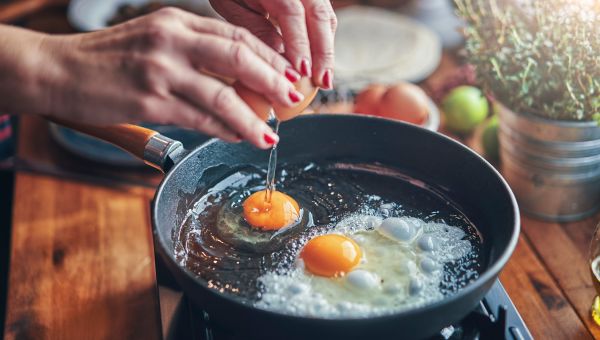
Eggs Kept My Diet Interesting
Eggs became an easy, reliable source of protein. And with so many ways to prep them, it helped with recipe fatigue. For example:
- On Sundays, I’d make a batch of hardboiled eggs for the week ahead. I’d peel them and keep them in the fridge to top salads or avocado toast.
- Sometimes I would use fried … Show More
Eggs became an easy, reliable source of protein. And with so many ways to prep them, it helped with recipe fatigue. For example:
- On Sundays, I’d make a batch of hardboiled eggs for the week ahead. I’d peel them and keep them in the fridge to top salads or avocado toast.
- Sometimes I would use fried eggs as a savory addition to veggie burgers.
- When making stir-fries, I’d push aside a space in the middle of the pan with my spatula. I’d then crack an egg and let it simmer between the other ingredients.
- If I started craving comfort food, I’d make a grilled cheese and egg sandwich on multigrain bread.
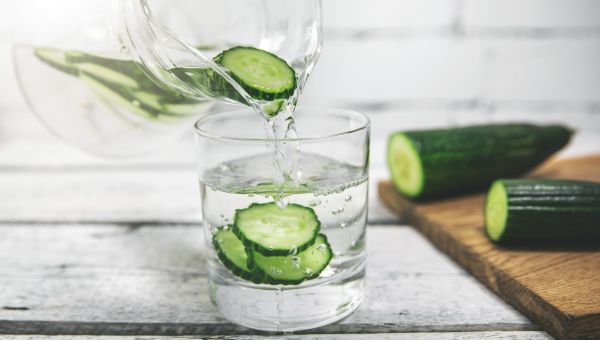
I Hydrated to Start My Day
At my busiest, I can go an entire day without drinking water, instead relying on caffeine-packed coffees, teas and juices. But drinking enough water can actually help to clear brain fog, boost energy and encourage weight loss.
So I made one simple change: fill a water jug each night and keep it… Show More
At my busiest, I can go an entire day without drinking water, instead relying on caffeine-packed coffees, teas and juices. But drinking enough water can actually help to clear brain fog, boost energy and encourage weight loss.
So I made one simple change: fill a water jug each night and keep it next to my bed. When I woke up in the morning, I’d down the entire thing—about 750 ml—before getting up. I forced myself to hydrate before even shuffling to the coffee pot.
The result? I was no longer ravenous when I walked into the kitchen. I could take my time putting together breakfast, rather than shoveling cereal in my mouth. This tiny tweak started my days on a healthier note.
Show Less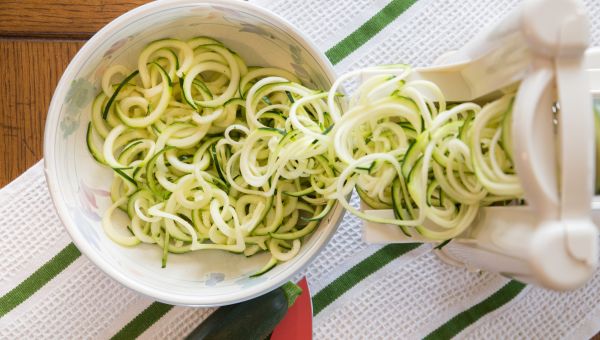
These Kitchen Gadgets Were Lifesavers
I took advantage of timesaving kitchen gadgets. My rice cooker was especially helpful. I’d just pour in water or vegetable broth with whole grains, and press the “On” button. My side dish would be ready by the time I finished sauteing my vegetables.
Other lifesavers included:
- A spiralizer for … Show More
I took advantage of timesaving kitchen gadgets. My rice cooker was especially helpful. I’d just pour in water or vegetable broth with whole grains, and press the “On” button. My side dish would be ready by the time I finished sauteing my vegetables.
Other lifesavers included:
- A spiralizer for making quick zucchini noodles
- A single-serving blender for whipping up no-mess smoothies on the go
- Ice trays for making infused ice cubes, which motivated me to drink water. My favorite flavor was muddled raspberry and basil. (Pro tip: This was a fantastic use for fruit and herbs that were about to spoil.)
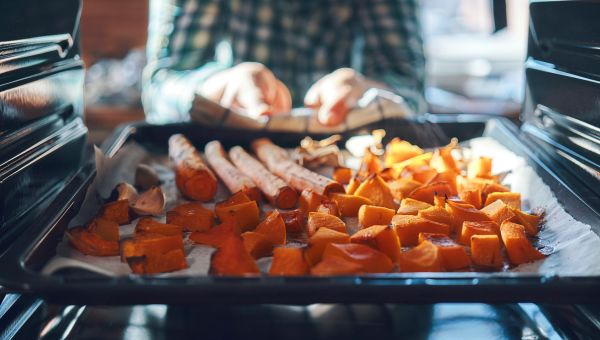
“Throw-and-Go” Foods Made Cooking Stress-Free
I learned the infinite possibilities of “throw-and-go” foods. These are foods, such as pre-washed and pre-cut veggies, canned beans, nuts and dried fruits, that require zero prep before you throw them in the pan.
Skipping the peeling and chopping process made cooking stir-fries and casseroles a… Show More
I learned the infinite possibilities of “throw-and-go” foods. These are foods, such as pre-washed and pre-cut veggies, canned beans, nuts and dried fruits, that require zero prep before you throw them in the pan.
Skipping the peeling and chopping process made cooking stir-fries and casseroles a breeze. Every dinner was unique, loaded with flavor and healthier than the night before.
Show Less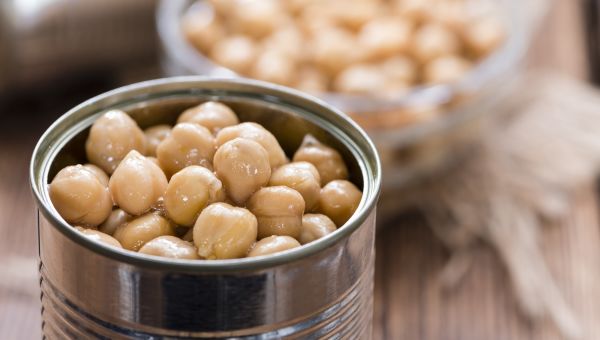
12 Essential Throw-and-Go Foods
Pro tip: Add these hassle-free items to your grocery list to eat healthy no matter how busy you are:
- Canned black beans and/or chick peas
- A bag of steamable sweet potatoes
- Single serving almond packs
- Dried cranberries and/or raisins
- Individually wrapped cheese snacks like string cheese or cheddar … Show More
Pro tip: Add these hassle-free items to your grocery list to eat healthy no matter how busy you are:
- Canned black beans and/or chick peas
- A bag of steamable sweet potatoes
- Single serving almond packs
- Dried cranberries and/or raisins
- Individually wrapped cheese snacks like string cheese or cheddar cheese cubes
- Sliced red cabbage and/or white cabbage
- Pre-cut broccoli florets
- Shredded carrots
- Pre-washed and chopped kale
- Diced onions
- Raspberries
- Cubed watermelon
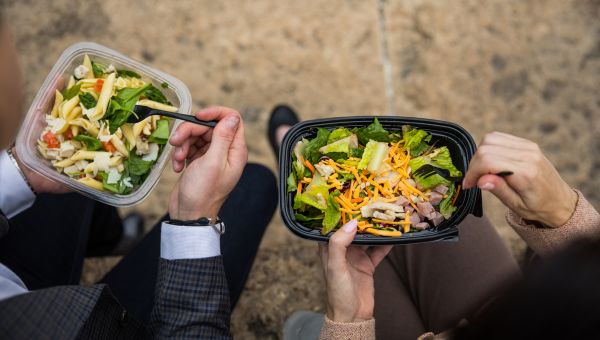
I Mastered the Healthy Five-Minute Lunch Box
When it came to lunches, throw-and-go foods let me pack filling salads in minutes. All you need to do is fill a container with salad greens, shredded carrots, sliced cabbage, pre-cut apple slices, chickpeas and almonds. Pack salad dressing, cheese and fruit on the side. You can also add a bit of… Show More
When it came to lunches, throw-and-go foods let me pack filling salads in minutes. All you need to do is fill a container with salad greens, shredded carrots, sliced cabbage, pre-cut apple slices, chickpeas and almonds. Pack salad dressing, cheese and fruit on the side. You can also add a bit of whole grains, which keep you feeling fuller throughout the day.
Show Less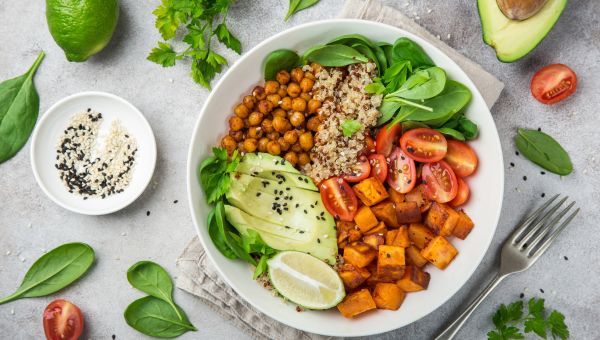
My Salads Got Bulkier
Before this challenge, I almost never ate salads. I just didn’t know how to make them interesting or filling. But I upped my salad game by experimenting with unconventional ingredients:
- Sweet potatoes: I’d buy the steamable microwave bags, pop ‘em in during weekend meal prep, then slice and store … Show More
Before this challenge, I almost never ate salads. I just didn’t know how to make them interesting or filling. But I upped my salad game by experimenting with unconventional ingredients:
- Sweet potatoes: I’d buy the steamable microwave bags, pop ‘em in during weekend meal prep, then slice and store them for the week ahead. Sweet potatoes add bulk and flavor to salads, creating a delicious creamy consistency when you mix them in with your greens.
- Kale: Stay with me here—I know raw kale looks and feels like rabbit food. But I learned that finely chopped kale is surprisingly filling and acidic foods like tomatoes and apple cider vinegar soften its leaves. Chopped kale in apple cider vinegar is now my favorite type of salad.
- Raw corn: This easy topping adds crunch, sweetness, fiber and antioxidants. Just wash an ear, slice off its kernels with a sharp knife and sprinkle over your salad.
Beans, nuts, seeds like chia and flax, dried fruit and grains make salads far less wimpy too.
Show Less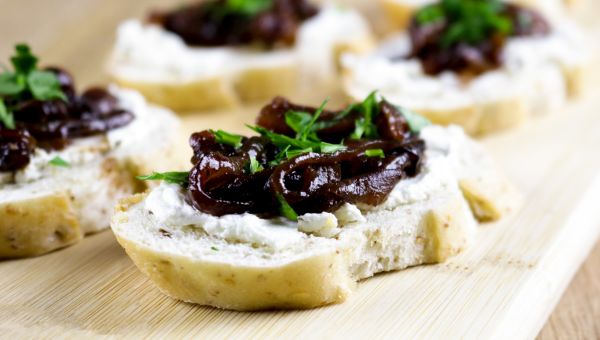
I Always Had Savory-Sweet Snacks On-hand
Healthy sweet-and-salty snacks curbed my hunger. Since my diet was more nourishing overall, I no longer had the urge to binge at night. Some of the best combos were:
- Whole grain crostinis dipped in low-fat whipped cream cheese with dried cranberries
- Cheddar cheese, cashews and apple slices
- Dark … Show More
Healthy sweet-and-salty snacks curbed my hunger. Since my diet was more nourishing overall, I no longer had the urge to binge at night. Some of the best combos were:
- Whole grain crostinis dipped in low-fat whipped cream cheese with dried cranberries
- Cheddar cheese, cashews and apple slices
- Dark chocolate with almonds and a clementine
- Watermelon cubes and feta with basil or mint
- Elvis pudding. Mix chia seeds and soy milk until it takes on a pudding-like consistency; stir in peanut butter and banana slices to taste
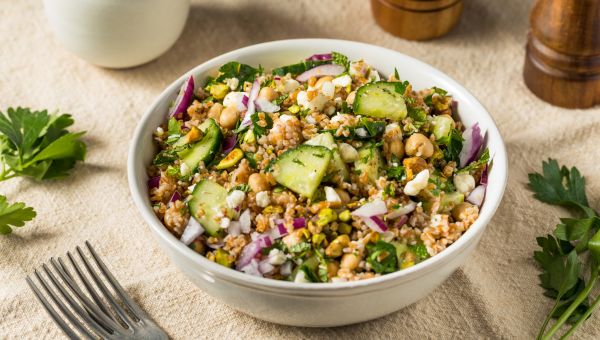
(Healthy) Carbs Were Always on My Plate
Instead of using (my favorite) white rice as the base of most meals, I’d fill my plate with lettuce or veggies. I’d top that with protein like beans, nuts or tempeh, and then serve whole-grains on the side.
Some of my favorites were wild rice, bulgur, farro and barley. Bulgur cooks especially fast (… Show More
Instead of using (my favorite) white rice as the base of most meals, I’d fill my plate with lettuce or veggies. I’d top that with protein like beans, nuts or tempeh, and then serve whole-grains on the side.
Some of my favorites were wild rice, bulgur, farro and barley. Bulgur cooks especially fast (5 to 10 minutes), so it was a weeknight go-to.
Show Less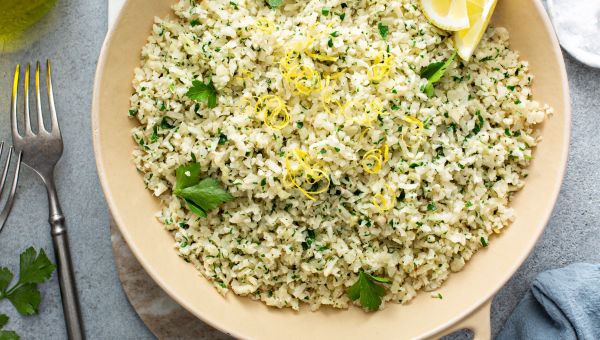
Cauliflower Rice Is Everything
I reluctantly tried cauliflower “fried rice” for the sake of this challenge, but this tasty vegan recipe is now a weeknight favorite. Plus it’s so easy to make when you don’t even have to make it yourself.
Pick up cauliflower rice (also called cauliflower crumbles), available either fresh or frozen… Show More
I reluctantly tried cauliflower “fried rice” for the sake of this challenge, but this tasty vegan recipe is now a weeknight favorite. Plus it’s so easy to make when you don’t even have to make it yourself.
Pick up cauliflower rice (also called cauliflower crumbles), available either fresh or frozen at most major grocery stores. Coat a pan with sesame oil and saute some garlic and diced veggies (I use a frozen mix of corn, carrots and peas). Stir in about two cups of cauliflower rice and drizzle 2 tablespoons of low-sodium soy sauce. Cook until cauliflower is tender, stirring often. Serve with a sprinkle of chopped green onions over top.
Show Less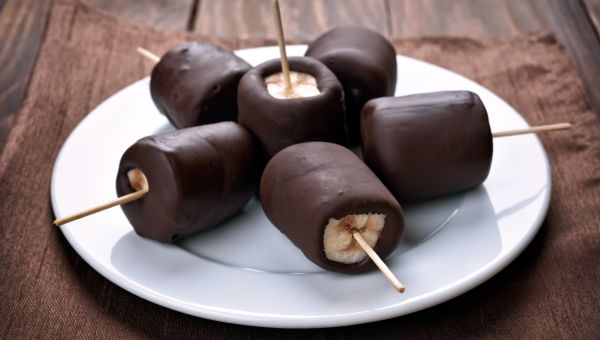
I Ate Dessert and Still Lost Weight
Nighttime snacking—especially on ice cream—is my number-one healthy eating pitfall.
A friend suggested I try frozen, dark chocolate-covered bananas as a vegan alternative to ice cream. I was skeptical because I actually don’t like bananas. But I gave it a try and was surprised to find that a banana… Show More
Nighttime snacking—especially on ice cream—is my number-one healthy eating pitfall.
A friend suggested I try frozen, dark chocolate-covered bananas as a vegan alternative to ice cream. I was skeptical because I actually don’t like bananas. But I gave it a try and was surprised to find that a banana’s texture changes when frozen. It melts in your mouth and mingles with the dark chocolate. It tastes like an indulgent dessert when it’s really a heart-healthy option.
Show Less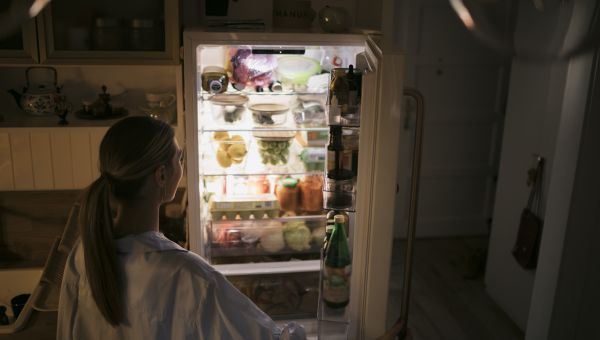
I Re-organized My Kitchen to Crush Cravings
I rearranged my pantry, freezer and refrigerator so that healthy foods, especially snacks, were visible and easy to grab.
Freezer: This is where I stored breads and cakes. I could still take out a slice and wait for it to defrost in the toaster oven, but the delay meant I was more likely to grab a… Show More
I rearranged my pantry, freezer and refrigerator so that healthy foods, especially snacks, were visible and easy to grab.
Freezer: This is where I stored breads and cakes. I could still take out a slice and wait for it to defrost in the toaster oven, but the delay meant I was more likely to grab a healthy snack from the fridge.
Refrigerator: I kept nuts, fruit, dried fruit and cheese all together on one refrigerator shelf at eye-level. When combined, they made for yummy snacks.
Back of pantry: I moved sugary cereals and other snacks from my counter to the back of my pantry. The “out of sight, out of mind” principle worked—I haven’t touched those boxes since.
Show Less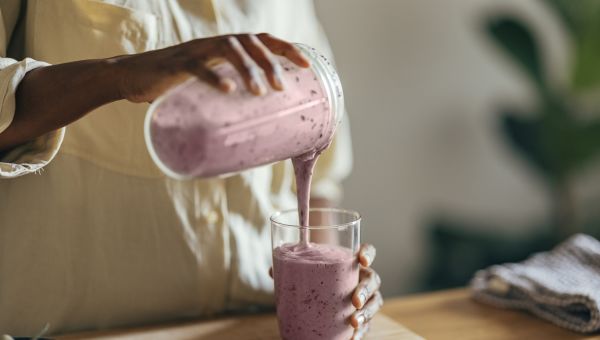
Five-Minute Smoothies Nixed My Munchies
Once I learned how to make smoothies in 5 minutes or less, I started making them all the time. I simply combined a handful of frozen fruit mix into my single-serving blender, along with a few ice cubes, soymilk and chia seeds.
Clean up was also a breeze. I just had to rinse the blender afterwards.
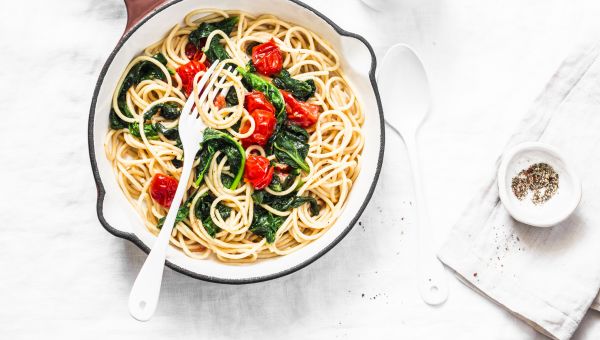
One-Pot Pasta Dinners Made Life Easy
In moderation, pasta can help you stay slim and let you stick to an overall healthy diet, according to a 2016 study from the Journal of Nutrition and Diabetes. But the trick is to eat a reasonable serving size, along with other nourishing foods like green veggies, calcium-rich cheese, olives and… Show More
In moderation, pasta can help you stay slim and let you stick to an overall healthy diet, according to a 2016 study from the Journal of Nutrition and Diabetes. But the trick is to eat a reasonable serving size, along with other nourishing foods like green veggies, calcium-rich cheese, olives and legumes.
There are plenty of fast and easy one-pot pastas that make for healthy, satisfying meals. Try this one: Boil pasta until it’s still somewhat firm, not quite ready to eat. Drain the water and then drizzle some olive oil over pasta. Place the pasta pot back over low heat. Add a can of crushed tomatoes and let them simmer. Mix in fresh basil leaves, salt, pepper, red pepper flakes and minced garlic to taste.
From there you can get creative with protein and veggie additions like spinach leaves, sundried tomatoes, cannellini beans, chick peas, green peas and mushrooms.
Show Less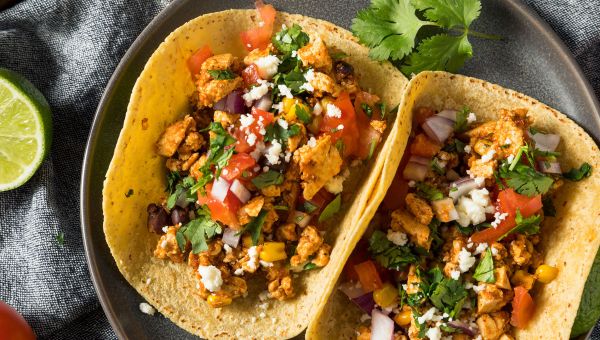
Some Vegetarian Proteins Were Delicious
I don’t enjoy the texture of tofu, so I reached out to vegetarian friends to learn about other meat-free proteins.
Vegan crumbles: The ingredients in vegan crumbles vary depending on which brand you choose, so read the label before purchasing. They’re meant to have a similar taste and texture to… Show More
I don’t enjoy the texture of tofu, so I reached out to vegetarian friends to learn about other meat-free proteins.
Vegan crumbles: The ingredients in vegan crumbles vary depending on which brand you choose, so read the label before purchasing. They’re meant to have a similar taste and texture to ground beef. They’re great for stir-fries and tacos. Pro-tip: Keep a bag in the freezer and scoop out individual servings as needed.
Seitan: This chewy meat alternative soaks up the flavor of whatever you cook it in. That makes it ideal for soups and sautes. When eating seitan, I often forgot that it wasn’t meat. I highly recommend this protein but beware that it’s not safe for gluten-free diets.
Tempeh: Tempeh is made from fermented soybeans and has a firm texture. It starts out with a subtle nutty flavor, but like seitan, it also adopts the flavors of whatever else is in the pan.
Show Less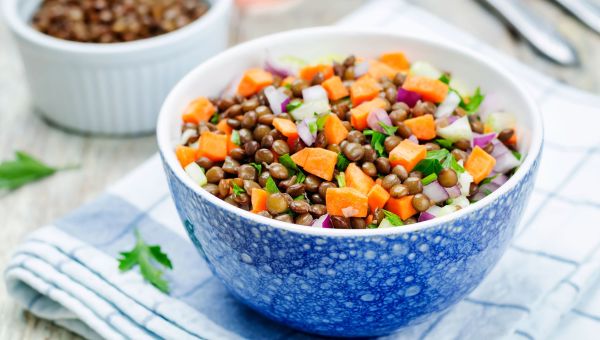
Sundays Were for (Ready-to-eat Protein) Meal Prep
Since most of my produce was shelf-stable and could be eaten raw, Sunday meal prep focused on protein dishes. I’d make batches of options like:
- Brown rice and black beans
- Seitan diced and simmered in low-sodium teriyaki sauce
- Boiled lentils with spinach, sauteed onions, salt and pepper
- Hard boiled … Show More
Since most of my produce was shelf-stable and could be eaten raw, Sunday meal prep focused on protein dishes. I’d make batches of options like:
- Brown rice and black beans
- Seitan diced and simmered in low-sodium teriyaki sauce
- Boiled lentils with spinach, sauteed onions, salt and pepper
- Hard boiled eggs
- Tuna salad with chopped celery and onions
Pro-tip: Having cooked protein options on-hand made preparing tacos, salads and wraps effortless during the week.
Show Less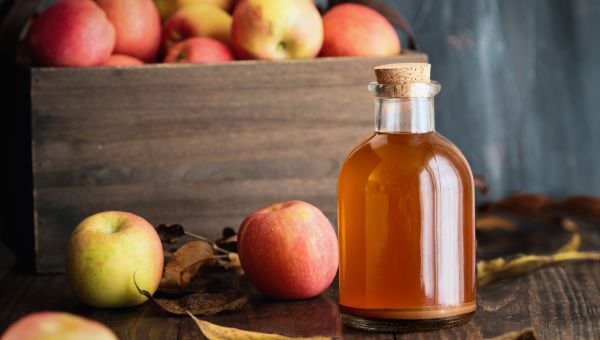
Swapping Condiments Slashed My Salt Intake
Rather than adding flavor to veggie-based dishes with salt or condiments, I’d reach for these healthier options.
Apple cider vinegar: This vinegar is less tart than the white or balsamic version. It’s slightly sweet and adds a nice splash of flavor to salads and vegetable dishes.
Pickled veggies:… Show More
Rather than adding flavor to veggie-based dishes with salt or condiments, I’d reach for these healthier options.
Apple cider vinegar: This vinegar is less tart than the white or balsamic version. It’s slightly sweet and adds a nice splash of flavor to salads and vegetable dishes.
Pickled veggies: Pickled foods can be loaded with salt and preservatives, so read the ingredients. I chose locally made kimchi, which is a spicy pickled cabbage, or pickled peppers, both of which were preserved in white vinegar. They had zero salt, but added flavor to savory dishes.
Greek yogurt: I used it on sweet potatoes in place of butter, and on veggie burgers in place of mayo. It was a surprisingly satisfying swap.
Show Less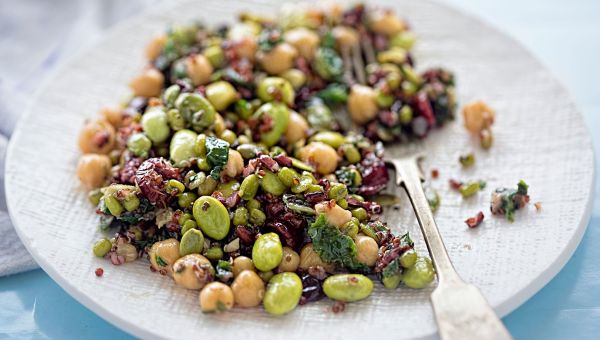
I Got Enough Iron without Meat
Like many women, I’ve experience anemia, or a low red blood cell count. When this happens, I typically eat high-fat, meat-based dishes to help ease my symptoms. Sometimes I also need an over-the-counter iron supplement, which my OBGYN approved.
Before starting this challenge, I asked my OBGYN if… Show More
Like many women, I’ve experience anemia, or a low red blood cell count. When this happens, I typically eat high-fat, meat-based dishes to help ease my symptoms. Sometimes I also need an over-the-counter iron supplement, which my OBGYN approved.
Before starting this challenge, I asked my OBGYN if she thought it was safe to skip meat, even when anemic. She reassured me and provided tips on how to boost my iron stores:
- Combine vitamin C rich foods like oranges or red peppers with iron-rich foods like kale to boost iron absorption.
- Opt for plant protein sources that also contain iron like rice and beans.
- Don’t take pills with coffee or tea because the tannins in these drinks can interfere with absorption for most iron supplements.
- Avoid cheese, milk, eggs and yogurt within one-to-two hours of taking pills, since these foods can also decrease absorption.
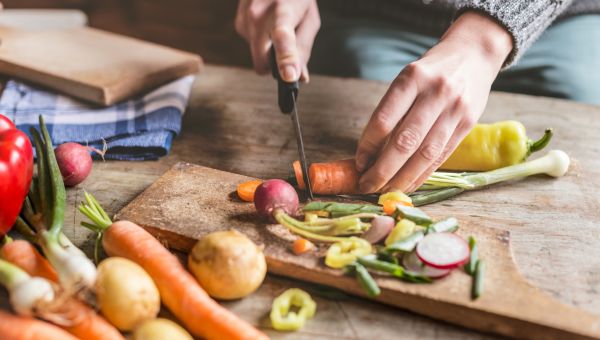
What’s Next for Me?
I still cook most of my meals at home, but I’ve started eating poultry about three times a week. Even so, I’m eating far more whole foods, particularly green vegetables, than I did before.
Now that I’m a more confident chef, I’ve started cooking traditional family recipes. I’ve learned how to make… Show More
I still cook most of my meals at home, but I’ve started eating poultry about three times a week. Even so, I’m eating far more whole foods, particularly green vegetables, than I did before.
Now that I’m a more confident chef, I’ve started cooking traditional family recipes. I’ve learned how to make my mom’s escarole soup and my grandma’s pasta fagiole, among others. Continuing these traditions and preserving the recipes has been an unexpected and meaningful benefit to this experience.
Want to read another editor-tested diet? Find out what happened when this Sharecare editor gave up sugar, alcohol, dairy and gluten.
Show LessMore On


video

article

slideshow


video


video
